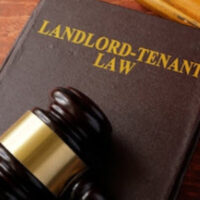Three Things Commercial Landlords in Florida Should Know About the CARES Act

On March 27th, 2020, President Trump signed the Coronavirus Aid, Relief, and Economic Security (CARES) Act into law. The bill contains a wide array of different economic measures that are aimed at helping people and companies get through the COVID-19 (coronavirus) public health crisis and the related temporary shutdown of businesses.
For commercial landlords and commercial real estate owners, the bill has some important implications. It may be able to help provide some much needed relief. In this post, our West Palm Beach landlord-tenant litigation attorneys highlight three of the most important things that commercial landlords need to know about the CARES Act.
- Small Businesses Will See a Much Needed Cash Infusion
One of the most important provisions for commercial real estate owners involves the forgivable loans that are targeted at small businesses. Many small businesses in South Florida have been forced to temporarily halt operations because of the coronavirus outbreak. As these companies frequently operate on very thin margins, there have major questions raised about their ability to stay afloat.
A $349 billion program will give qualifying small businesses access to the cash they need to maintain their payroll, cover utilities, and pay their rent. In turn, this should help stabilize the commercial real estate market. If you have a financially distressed small business tenant, they may have options available to get money to cover rent.
- No Moratorium on Commercial Evictions (But State/Local Regulations May Apply)
The CARES Act also puts a 120 day moratorium on some residential evictions. However, commercial landlords are not covered by this part of the act. That being said, there are also a number of different state and local rules being put into place. A commercial landlord may be temporarily barred from evicting a commercial tenant under state/local regulations.
Of course, that is not to say that eviction is necessarily advisable even when doing so is legally permissible. It is important for commercial landlords to consider the reputational costs of eviction and limited opportunity to get a new tenant at this time. Every issue should be considered on a case-by-case basis.
- Real Estate Owners May Be Able to Reduce Tax Liability
Finally, some commercial landlords may be eligible for more direct economic relief through reductions in their real estate tax liability. Through a complex set of regulations, some property owners may be able to produce significant savings. Perhaps most important is a technical fix to previous law that allows some taxpayers to claim full depreciation for certain property improvements. Real estate owners/landlords that made real property improvements since the end of 2017 should review their eligibility for tax relief.
Call Our South Florida Commercial Landlord Lawyers Today
At Pike & Lustig, LLP, we have extensive experience representing commercial landlords. If you have any questions about the federal COVID-19 relief bill and your legal rights or legal options, we are available to help. Contact us now for a strictly private initial consultation. From our offices in Miami and West Palm Beach, we represent clients throughout the region.
Resource:
congress.gov/bill/116th-congress/senate-bill/3548/text



